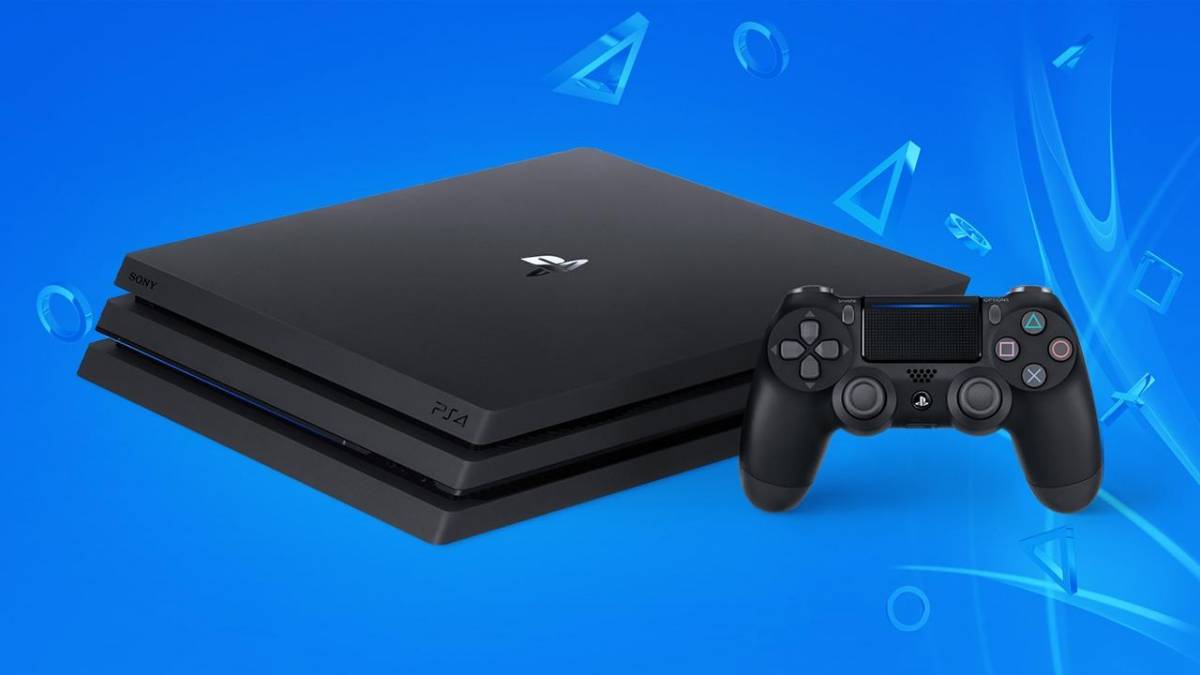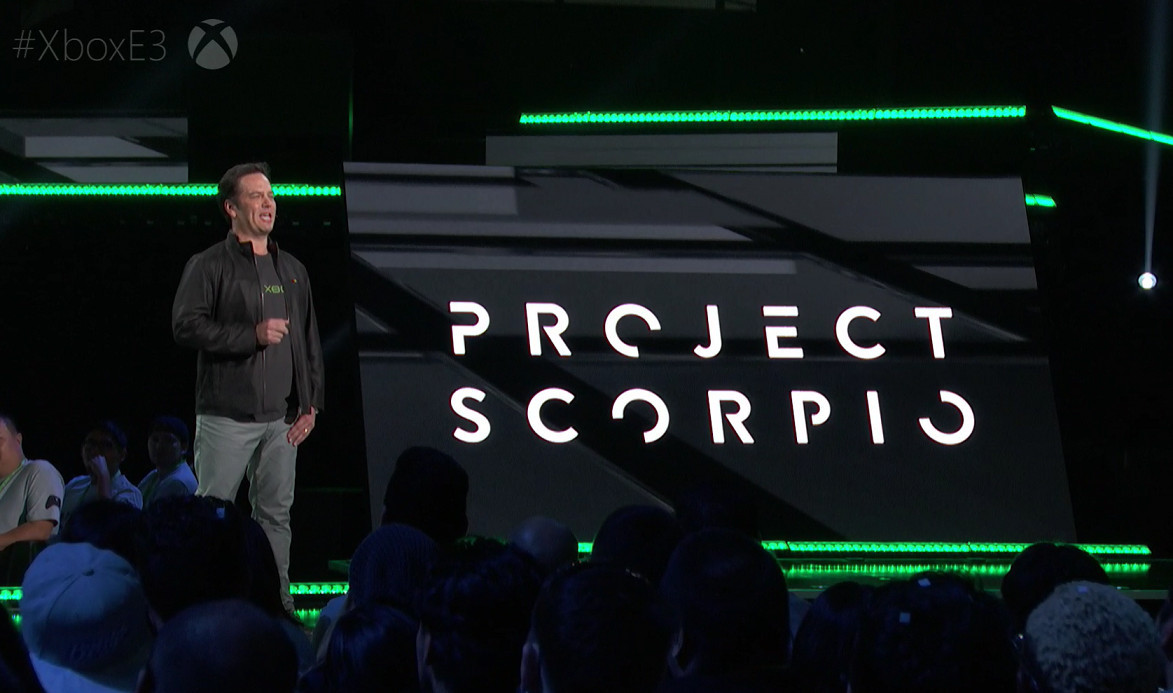As I was scratching my head attempting to understand Digital Foundry’s recent write up of the technical specifications for Microsoft’s imminent ‘Project Scorpio’ (read: Xbox Two, sort of) I came across a statement that I had not yet heard spouted by such an authority on the subject;
“Moore’s Law is slowing down.”
If you need a quick reminder, Moore’s Law from 1965 regarding the development of computer processors goes approximately as: the number of transistors in a dense integrated circuit doubles approximately every two years. For years, research and development centred on shrinking processors through miniaturising transistors. It wasn’t just about processing power, though; it was also necessary for the component materials to become cheaper, which in fact occurred as huge demand for both corporate and consumer electronics fueled adequate, cost effective supply.
In laymen terms: computers get twice as powerful and half the size every two years whilst maintaining affordability. I’m sure a great many computer scientists may quibble with my definition, but it will suffice for now.
Still with me? Good, because we haven’t made it to the confusing part yet.

There have been rumblings over the past few years that Moore’s Law was subject to a theoretical limit, where the principles of thermodynamics and quantum physics intersect to prevent the miniaturisation of silicon transistors going any further. Specifically to blame is the remarkable Quantum Tunnelling, which is where an electron can pass through a suitably thin wall even if they don’t have the energy required to do so. A particle being able to move without the requisite energy flies in the face of most people’s understanding of Newtonian physics, so don’t worry if you’re struggling to understand – I certainly am. There are a few ways to mitigate this phenomenon, but there is no cure at the moment. So it appears that limit is now fast approaching and its consequences are as varied as they are far reaching. As ever, though, I am chiefly concerned with the world of consumer electronics and specifically video games.
Project Scorpio (they really need a new name for that) promises to be the fastest, most powerful video game console ever made. I have even heard talk that it will rival a high-end specification PC in terms of raw power. The issue is that the Xbox One is less than three years old, so why the need for a supped-up version so early into its lifecycle and what does it tell us about the future of console iterations?
Let’s have a look at some of the most successful consoles of the modern era and their lifespans;
The Playstation: 1994-2000
Gamecube: 2001-2006
Nintendo 64: 1997-2003
Playstation 2: 2000-2006
Xbox 360: 2005-2016
Playstation 3: 2006-2017
(I made the decision to focus on the more successful consoles so that we could see how sustained support and commercial interest manifests in the market place.)
As you can see from the list above, the typical range of a console’s lifespan is around 6-10 years, comfortably outlasting Moore’s Law. So before now, consoles have decided to forego the availability of incremental upgrades for a more medium term approach. In other words, they could have produced an upgraded piece of hardware (assuming we accept Moore’s Law to be applicable), but they chose not to. So why the sudden change of heart? We have seen so called ‘slim’ and ‘elite’ versions of existing consoles be released within a console’s life cycle, but these have been about minor changes; smaller console chassis or the inclusion of a wifi adapter for instance. Project Scorpio, along with the Playstation 4 Pro, is the first time we’ve seen a genuine upgrade in technical specifications within the same console’s lifespan.

Conventional wisdom dictates that whilst a company may be able to build a better, faster, more powerful machine, it isn’t always necessarily the best idea to do so from both a partner and consumer relations perspective. Developers will have to transpose existing projects to the new platform and consumers may wrinkle at being offered a better but similar version of something they already own. So Microsoft’s decision to pursue the release of Project Scorpio doesn’t make a tremendous amount of sense until we place it in context of the idea that Moore’s Law is slowing down. With Project Scorpio and the Playstation 4 Pro, I believe the major console manufacturers are remodelling the landscape to fit with the new reality of a slower Moore’s Law.
The jump from Xbox 360 to Xbox One was not the visual or computational uppercut that we saw between the Playstation and the Playstation 2. It is possible, though this is simply a theory, that this is not the result of subpar design but of technological limitations. I believe the heavy hitters in the industry are aware that within the confines of silicon based chip manufacturing, they have hit a plateau where improvements can be incremental but not radical and as such, are now in the business of tempering expectations. It appears, and this is just a theory, that Microsoft and Sony know that they are entering a world of diminishing returns on processing power, and as such if they were to wait for 3-4 more years and reveal a new generation of consoles then consumers may be critically underwhelmed. Instead a more regular cycle would condition consumers to expect less and mitigate the impact on the consumer of the rate of deceleration in the consumer electronics market.
The implications of such a paradigm shift are difficult to foresee and we only really have patterns from other industries to base our models on. The problem with using other sectors though is that video games are unique in that there are only really three main players in the hardware market and you can even discount one of them as Nintendo are not competing at this end of the technological spectrum. Compare that to mobile phones, where the choices are much more varied and the biggest companies are forced to share the market with multiple smaller brands. The consistencies are there however as the mobile phone market has also seen an admission on the part of big companies that their future lines of products will be evolutionary, rather than revolutionary. This comparison is apt because I believe the console market will follow suit. I do not expect to see similar two year product cycles in the video game industry but a new console every 4 years does not sound beyond the realm of possibility to me.

So if we get a new console iteration every four years, what does that mean for gamers? Again, it’s difficult to know, and very much depends which aspect of the market we’re looking at. Some have predicted we will see and end of the traditional sequel sequence of game releases. Instead of having successive FIFA releases for instance, you will instead have a much more fluid system of updates and improvements released periodically reminiscent of the Apple App Store.
The consequences seem more problematic for the less illustrious developers who could see their work become irrelevant too quickly as they fail to keep pace with the ever changing hardware market. In the last couple of console generations, certain indie games have come to define the eras: Geometry Wars was a smash hit on the Xbox 360 alongside Shadow Complex and Castle Crashers. In the most recent generation we’ve had Limbo and Inside set the tone. Having this time and space to breathe is crucial for indie games to ramp up enough word-of-mouth amongst the gaming community to be successful. Rampant console cycles would diminish this opportunity significantly.
My intent is not to call time on the consumer electronics industry but rather to show that we are entering a new and uncertain era, one that should throw up plenty of surprises along the way.
Some of the coverage you find on Cultured Vultures contains affiliate links, which provide us with small commissions based on purchases made from visiting our site. We cover gaming news, movie reviews, wrestling and much more.



